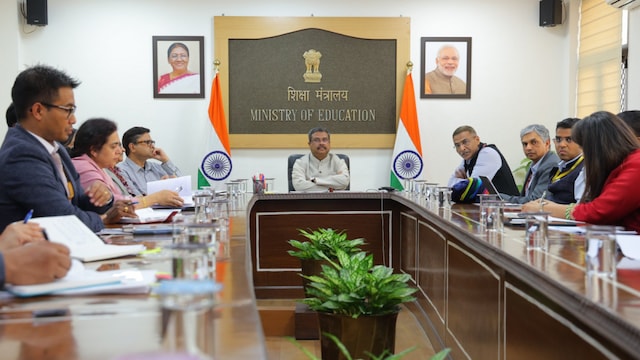The Central Board of Secondary Education (CBSE) is set to introduce a global curriculum for foreign students starting in the 2026-27 academic year. This decision was taken during a high-level meeting led by Union Education Minister Dharmendra Pradhan, where officials from CBSE, NCERT, KVS, NVS, and representatives from CBSE-affiliated international schools discussed the framework and implementation roadmap.
CBSE announced the move on social media platform X, stating that the board has been directed to prepare a comprehensive action plan for the rollout of this curriculum. The initiative aims to provide a standardized and globally competitive learning experience for students in CBSE-affiliated schools outside India.
In another major reform, CBSE plans to introduce biannual board exams from 2026. As per CBSE, this initiative aims to reduce academic stress while giving students multiple opportunities to improve their scores. The proposed system will include exams held in November-December and February-March, with the best score being considered for the final result.
Naman Jain, Vice-Chairman of Silverline Prestige School, Ghaziabad, highlighted the potential benefits of this change, stating, “With the flexibility of subject selection provided, students will feel more prepared, and only their best score will be used for the final result. This approach aims to ease exam-related stress while enhancing academic and career opportunities.”
While many educationists see this as a progressive step toward reforming the Indian education system, concerns remain regarding the increased frequency of exams and the potential pressure on students. The success of this initiative will depend on effective implementation, institutional support, and acceptance from students, parents, and educators. Ensuring seamless coordination among all stakeholders will be crucial in making the new system sustainable and beneficial in the long run.



